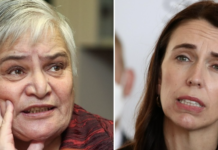General practice ownership in New Zealand has been incrementally challenged for some years. It is a chal lenge can’t be ignored and won’t go away. General practice is central to the delivery of primary care as a vital part of a wider, universal public health system that seeks to ensure access for all New Zealanders to a comprehensive range of quality health services. At the very least general practitioners are an effective clinical gatekeeper for patient access to public hospitals in a universal health system.
Although general practices provide the large majority of primary care, there has been a trend of slow decline in the proportion of GP partners in general practices to just over one-third of the total GP workforce. As GP partners retire it is increasingly difficult to find new GPs willing to purchase their financial equity. Commonly existing GP partners take up the equity of a retiring practice partner. This fudges the situation somewhat but doesn’t halt the trend.
There is a slow growth in corporate ownership, but it isn’t filling the gap. The limited critical mass of general practices in a small country like New Zealand appears to restrict the level of relative profit maximisation for corporates to expand at a faster rate. It is interesting that in a survey on the impact of the Covid-19 national shutdown last year on primary care Counties Manukau District Health Board identified that some general practices closed down. Although a small number all were corporate rather than GP owned. Profit maximisation appears to be relatively less important for GP owned general practices than corporate owners.
Societal trends
The combination of salaried GPs and contractors, long and short term, now makes up the majority of the GP workforce, at over 60%. This has been a gradual increasing trend over several years. Societal trends rather than government policies are largely behind this trend of declining GP partners. The first is demographic. The natural ageing of GPs, consistent with the wider population, means an increasing number, including partners, are at an age to consider taking retirement.
The second trend is the continuing genera tional shift to improved work–life balance. This is particularly among younger GPs, compounded by the growing proportion of females in the GP workforce, who are less inclined to buy practice ownership equity with all the additional business responsibili ties this involves. The trend is reinforced by high medical student debt which, for many, can be akin to an additional mortgage.
GP ownership can’t cut it in terms of providing fully comprehensive primary care access. It can do much, but not all. However, the “much” is slowly getting smaller and the “all” is getting bigger, at least relatively. This sits behind the initiative of Counties Manukau DHB to consider employing its own GPs directly, to better fulfil its statutory responsibili ty for its population. This is a positive initiative that has unfortunately been undermined by the Government’s decision to abolish DHBs next year.
New complexity
But there is a new complexity on the scene. This is the combination of smaller rural hospitals and the expanding role of the newest vocational (specialist) branch of medicine, rural hospital medicine.
The rural hospital side of the equation is already evident in West Coast DHB (Greymouth and Westport) and is coming to the fore in Northland and Taranaki DHBs. Other DHBs where this new complexity might emerge include Waikato, Lakes, Tairāwhiti, Whanganui, MidCentral and Southern (around central Otago).
Rural hospital medicine is a division in the Royal New Zealand College of General Practitioners. The Medical Council defines the specialty by the context of where the medical care is provided: in rural communities, which includes professional and geographic isolation. Invariably, it is practised at a distance from comprehensive medical and surgical services and investigations.
Rural hospital medicine is respon sive rather than anticipatory and doesn’t continue for the same patient over time. It combines the generalism of general practice, largely in a hospital setting, with expanded practice scopes, particularly obstetrics and anaesthesia. It is well suited for geographically isolated smaller hospitals serving small populations. Rural hospital medicine is not the same as rural general practice. In contrast to the latter it is practised in secondary-care settings (hospitals), including outpatient and inpatient services.
Increasingly rural hospital medicine specialists are being employed in DHB rural hospitals. West Coast’s Grey Hospital and Southern DHB’s Lakes District Hospital in Queenstown were early starters. Initially, Grey Hospital had been considered too big for this new branch of medicine, but this changed over time.
Towards the end of my time with the Association of Salaried Medical Specialists, an interesting significant expansion occurred in Northland DHB’s rural hospitals in the Bay of Islands, Dargaville and Kaitaia.
A raw nerve
The complexity is that these special ists are also GPs. This provides certain opportunities, such as Taranaki DHB’s plan to extend the role of their rural hospital medicine specialists at Hāwera Hospital into the provision of primary care. This has struck a raw nerve with South Taranaki GPs, inflamed by serious deficiencies in the consultation about the change.
Putting this particular tension to one side, the employment of rural hospital medicine specialists in small hospitals creates the opportuni ty for DHBs to extend into primary care provision. There is a logic behind this, depending on the quality of engagement with affected GPs and a shared understanding of the problem the initiative is designed to solve. Again the Government’s decision to abolish DHBs will unfortunately make realising this opportunity more difficult.
Subject to how this difficulty pans out, the challenge for the medical organ isations representing GPs, including practice owners, will be to advocate for the adaptability of GP ownership to benefit our universal public health system, rather than the other way around. Health-system objectives first; form(s) of delivery second.
[This posting is an amended version of my most recent column published in the fortnightly NZ Doctor publication]
Ian Powell was Executive Director of the Association of Salaried Medical Specialists, the professional union representing senior doctors and dentists in New Zealand, for over 30 years, until December 2019. He is now a health systems, labour market, and political commentator living in the small river estuary community of Otaihanga (the place by the tide). First published at Otaihanga Second Opinion.






What health system? Can’t see a GP unless you register or are rich, and all the clinics have been full for a decade or two. _There is no healthcare access in this country_.
Exactly why our health system is ranked worse than the usa by the WHO.
Dysfunctional meds funding
Dysfunctional Hospital access
Dysfunctional Primary care.
My suggestions ;My suggestions for fixing our medicines – health benefits related funding.
I have posted this before to Louise Wallace Labour, James Shaw and Dr Elizabeth Karererere Greens.
My Ideas to fix long term illness welfare funding.
1 Create a Medicare agency including accidents and long term illness ( long term being anything outside of your sick leave entitlement).
2 Place a Medicare Agency social worker in every Doctors surgery ( Why because of the increased workload because of idea 5 6 7 and 9 ).
3 Fund ALL MEDICINES through the Medicare Agency ( Pharmac funded or otherwise).
4 Fund all long term illness welfare funding through the Medicare agency ( ie 80% of Minimum wage benefit).
5 Remove all Long term Welfare illness funding from Winz.
6 Remove all the relationship rules and limits for all long term welfare illness benefits.
7 Remove the requirement for 2nd opinion doctors reports as the ACC social worker can discuss it directly with your doctor at the clinic.
8 Create the agency within Acc to cut double agency costs.
9 The Agency organises specialist appointments and where an operation in a public hospital can’t be done in a timely manner arranges it in the private sector at Governments cost. This should be arranged before leaving the Doctors surgery/clinic.
10 All medicines on a Prescription ( Funded or Unfunded) should count towards the 20 count, including any repeats, to get Free meds after 20 Prescriptions.
11 Remove restrictions on diagnostic and maintenance testing that patients require for effective medication dosing purposes.
12 All ACC SOCIAL WORKERS at a doctors surgery issue a patient with a medicines swipe card to swipe at a pharmacy.
If a medicine is unfunded ACC pays all but the $5 pharmac fee, if it is Funded the Patient pays the $5 fee.
13 Dr visit fees and unfunded Medicines then be funded by a medicare levy, which replaces the current acc levies, we all pay to the Medicare agency including beneficiaries.
Geoffrey Lye
Christchurch Central
Comments are closed.